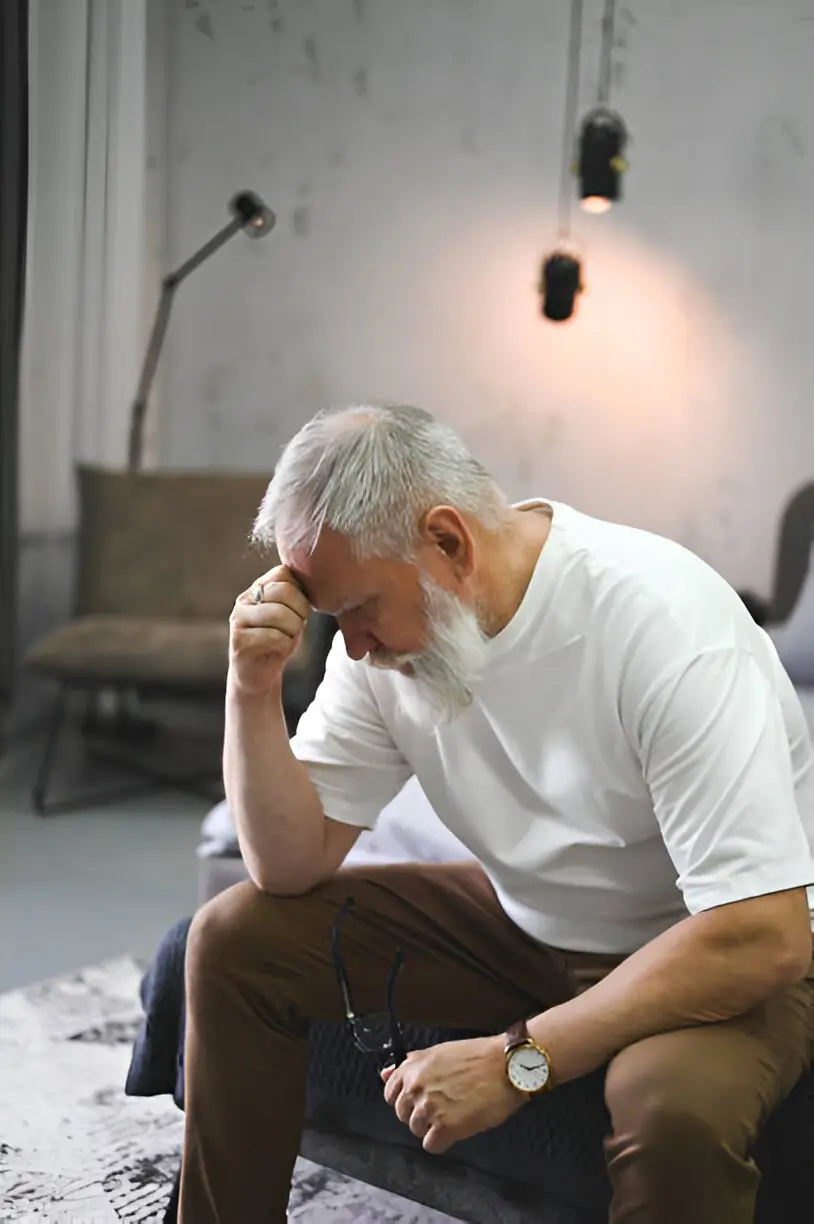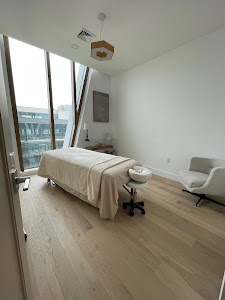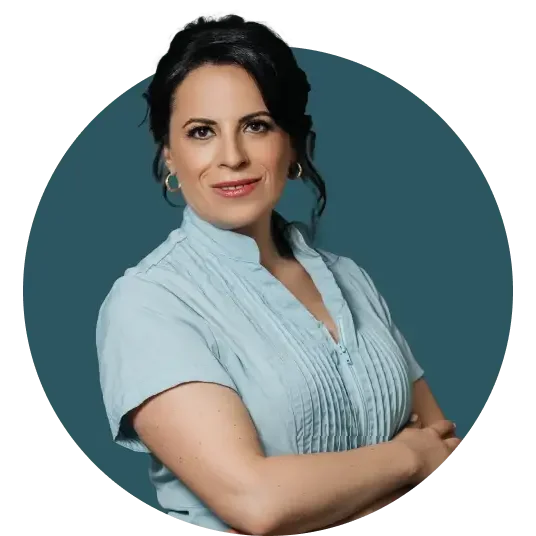Acupuncture for PTSD and Trauma
Acupuncture for PTSD and Trauma
What is PTSD?

Post-traumatic stress disorder (PTSD) is a mental health condition triggered by experiencing or witnessing a traumatic event, such as an accident, natural disaster, or combat. These events can leave a lasting impact on a person’s mental and emotional well-being, leading to a variety of distressing symptoms. Common symptoms include flashbacks, nightmares, severe anxiety, and uncontrollable thoughts about the traumatic experience. These symptoms can emerge shortly after the traumatic event or may surface months or even years later, making PTSD a complex and unpredictable condition.
For many people, the symptoms of PTSD can interfere with daily life and relationships, often lasting for months or years. This disruption can affect a person’s ability to work, maintain social connections, or engage in everyday activities. They are left with feelings of isolation and frustration. It’s not just the traumatic memories themselves that are troubling; the constant state of alertness, irritability, and sleep disturbances can wear down both physical and mental resilience over time.
Acupuncture for PTSD has been explored as an alternative approach, with some studies suggesting that it may help to reduce symptoms by giving relaxation, reducing stress, and balancing the body’s energy flow. This ancient practice focuses on stimulating specific points on the body, which can influence the nervous system and help manage the body’s stress response. Research indicates that acupuncture has biological effects that can be relevant to PTSD pathology, potentially providing relief from anxiety and sleep disturbances. Although further studies are needed to confirm its efficacy fully, many patients report a sense of calm and reduced symptom severity following acupuncture sessions.
Types of PTSD
Types of PTSD include:
- Normal Stress Response. Happens after a single, stressful event and can improve with support and time.
- Acute Stress Disorder (ASD). Intense symptoms that pop up within a month of trauma but may fade with treatment and self-care.
- Uncomplicated PTSD. The “classic” PTSD, triggered by one traumatic event, with symptoms like flashbacks, avoidance, and anxiety.
- Complex PTSD. Develops after long-term trauma, especially in childhood or from repetitive situations, like abuse or neglect.
- Comorbid PTSD. When PTSD happens alongside other conditions, like depression or substance use, making treatment more layered and difficult.
- Dissociative PTSD. Involves detachment from reality, feeling disconnected from yourself or the world, often due to extreme trauma.
Acupuncture for Complex PTSD can give you support by calming the nervous system to reduce the heightened stress response and provide a sense of emotional balance. Techniques often involve specific acupuncture points known to calm the mind and regulate the body’s stress responses. This can be particularly helpful for people dealing with the chronic and layered effects of Complex PTSD. By including acupuncture with other therapeutic approaches, many people find it easier to manage the complexities of CPTSD and regain a sense of stability.
PTSD Causes
The causes of PTSD are varied and include exposure to life-threatening events, severe accidents, combat, or traumatic experiences like abuse. PTSD can develop in response to a single traumatic event or as a result of repeated exposure to distressing situations. For example, first responders, survivors of natural disasters, or individuals involved in serious car accidents may experience the onset of PTSD due to the extreme stress and fear associated with these events. Veterans are particularly vulnerable to developing PTSD due to the nature of their experiences in combat zones, which often include high-stress and life-threatening situations. Exposure to violence, witnessing the death of comrades, or being in constant danger can create lasting mental and emotional impacts that contribute to PTSD.
The condition can affect a person’s ability to maintain relationships, hold steady employment, and find enjoyment in daily activities. Without appropriate intervention, the symptoms can become chronic, leading to further physical and mental health complications.
Acupuncture for PTSD veterans has gained attention as a complementary therapy, giving a natural way to manage symptoms. It can help with physical tension, emotional distress, and sleep disturbances that are common in PTSD. Many veterans find that acupuncture provides relief by promoting relaxation and easing the burden of stress on their minds and bodies, making it a valuable addition to their overall treatment plan. This non-invasive approach allows veterans to experience a sense of calm and improved mental clarity, helping them navigate their recovery journey alongside other treatments like counseling and medication.
If you are worried about PTSD or Trauma, make an appointment with us!
PTSD Symptoms

PTSD symptoms can impact daily life, often categorized into four main areas:
- Intrusion: recurrent memories, nightmares, and flashbacks. Individuals may relive the traumatic event as if it were happening again, which can disrupt their ability to focus on daily activities. Intrusive thoughts may come unexpectedly, causing distress and anxiety, especially when triggered by reminders of the trauma.
- Avoidance: avoiding places, people, or activities that trigger memories of the traumatic event. This can lead to social isolation, as individuals may withdraw from environments or relationships that remind them of their past experiences. Avoidance behavior can make it difficult for people with PTSD to engage in everyday activities, including work and social interactions.
- Negative changes in thinking and mood: persistent negative thoughts and feelings of detachment. These symptoms can include feelings of hopelessness, numbness, or emotional distance from loved ones. Individuals may have difficulty experiencing positive emotions, which can contribute to a sense of isolation and disconnection from others.
- Arousal and reactivity symptoms: hypervigilance, irritability, and difficulty sleeping. This can manifest as being easily startled or always feeling “on guard.” Sleep disturbances, such as insomnia or restless sleep, can exacerbate feelings of fatigue and make it harder to cope with other symptoms.
Acupuncture for trauma and PTSD symptoms focuses on fixing the physical manifestations of stress, such as tension and poor sleep. By targeting specific points, acupuncture can calm the nervous system, offering relief from symptoms like irritability and anxiety. This technique helps to balance the body’s energy, reducing the intensity of hyperarousal states that often accompany PTSD. Patients often experience an improvement in their overall sense of well-being and a reduction in hypervigilance after treatment, making it a valuable part of a comprehensive approach to managing PTSD.
Does Acupuncture Help With PTSD Symptoms?
Acupuncture’s role in managing PTSD symptoms has shown promise. It helps stimulate the body’s natural healing processes by targeting acupuncture points for trauma, such as points that promote relaxation and reduce stress. These include points like Shenmen (calming the spirit) and Yintang (third eye), which are known to have a calming effect on the nervous system. Stimulating these points may help to regulate the body’s stress response, reducing anxiety, irritability, and other common symptoms of PTSD. This can provide patients with a sense of relief from the hyperarousal often associated with this condition.
Acupuncture may also help improve sleep quality, a common challenge for those with PTSD. By addressing tension and restlessness through targeted points, many individuals experience deeper and more restorative sleep. The calming effects of acupuncture can ease the persistent fight-or-flight response seen in many trauma survivors, allowing their bodies to shift towards a state of rest and recovery.

As a natural remedy for PTSD, acupuncture can be combined with other holistic approaches like meditation and herbal supplements, providing a non-invasive option for those looking to avoid or complement medication. This integrative approach allows patients to explore different methods of managing their symptoms, offering flexibility in their healing journey. While it’s not a cure-all, acupuncture may serve as a useful part of a broader treatment plan, supporting both mental and physical recovery. It can be particularly valuable for those seeking relief from the lingering effects of trauma, helping to create a balanced and more peaceful state of mind.
What Are the Safety Considerations and Potential Side Effects of Acupuncture for PTSD?
Generally, acupuncture for trauma release is considered safe when performed by a trained professional, but some individuals may experience mild side effects like bruising, soreness, or lightheadedness after treatment. These effects are usually short-lived and resolve on their own. It’s important for patients to communicate with their practitioner about any discomfort during sessions to ensure a positive experience. Understanding these possibilities helps set realistic expectations for those seeking relief through acupuncture.
Holistic treatment for PTSD, including acupuncture, focuses on treating the whole person, addressing both the physical symptoms of stress and the emotional aspects. This approach aims to create balance within the body, helping patients manage the effects of trauma. Before beginning treatment, consulting with a licensed acupuncture practitioner ensures that the therapy is tailored to individual needs and conditions, minimizing risks while maximizing potential benefits. An initial assessment allows practitioners to customize the approach based on the patient’s medical history, making the treatment safer and more effective. By including acupuncture into a holistic care plan, patients can experience a natural, supportive method to aid in their recovery journey.
How Does Acupuncture Impact the Nervous System in PTSD Treatment?
Acupuncture is believed to impact the nervous system by influencing the body’s autonomic responses. This makes it particularly effective in addressing the heightened stress response seen in PTSD. The autonomic nervous system includes the sympathetic and parasympathetic systems, which control the body’s fight-or-flight and rest-and-digest responses, respectively. Acupuncture for emotional trauma works by targeting areas that promote relaxation and enhance the body’s ability to manage stress.
As an alternative treatment for PTSD, acupuncture is thought to help rebalance the sympathetic and parasympathetic nervous systems, leading to reduced anxiety and improved mood stability. By encouraging a shift towards the parasympathetic state, acupuncture allows the body to experience a deeper sense of calm and relaxation, which can be especially beneficial for those struggling with chronic stress and emotional disturbances. This balance is essential for individuals who have difficulty shifting out of a constant state of alertness due to trauma.
By stimulating the release of endorphins, acupuncture may also enhance mood and support the body’s ability to handle stress more effectively, offering a pathway to recovery. Endorphins, often referred to as the body’s natural painkillers, can contribute to an overall sense of well-being. This boost in mood and reduction of pain can make it easier for those with PTSD to engage in other therapeutic activities, further aiding their recovery process.
Can Acupuncture Help Veterans With PTSD?
Veterans often face unique challenges when dealing with PTSD due to the nature of their experiences. Many have been exposed to combat, life-threatening situations, and the loss of fellow soldiers, all of which can leave a lasting impact on their mental health. These experiences can make veterans particularly susceptible to symptoms like hypervigilance, nightmares, and flashbacks. Acupuncture and trauma therapy offer a complementary approach to traditional PTSD treatments, helping veterans address symptoms like sleep disturbances and anxiety. Acupuncture targets specific points that can calm the nervous system, potentially reducing the intensity of these distressing symptoms.
The physical effects of trauma often manifest as chronic tension, pain, and restlessness, which can further contribute to mental strain. By focusing on both physical and emotional aspects, acupuncture for veterans with PTSD may provide a sense of relief from ongoing symptoms. It can help alleviate physical discomfort, making it easier for veterans to participate in other forms of therapy.
Acupuncture can be used alongside talk therapy and medication. This approach allows veterans to address the different layers of their trauma, combining the benefits of acupuncture’s calming effects with the deeper exploration of experiences through counseling. Many veterans have found that regular acupuncture sessions help them manage symptoms and improve their overall quality of life. With continued sessions, some veterans report better sleep, reduced anxiety, and an improved ability to cope with stress, making acupuncture a valuable addition to their healing journey.
Acupuncture as Trauma Therapy at Pulse Acupuncture
Pulse Acupuncture offers acupuncture for trauma at its locations in Clifton, NJ, and Williamsburg, Brooklyn. Under the guidance of Marina Doktorman, L.Ac., patients receive safe and individualized care designed to address PTSD and trauma. With years of experience, Marina Doktorman is skilled in providing treatments that focus on creating a sense of calm and balance, making her approach particularly effective for individuals dealing with the long-term effects of trauma. The welcoming environment at Pulse Acupuncture ensures that patients feel comfortable throughout their healing journey.
The PTSD treatment focuses on balancing the body’s energy flow and promoting natural recovery, so it’s an effective option for those seeking natural PTSD treatment. This approach aims to address both the physical and emotional aspects of trauma, offering relief from common symptoms like anxiety, sleep disturbances, and chronic stress. Through acupuncture, the body’s natural healing processes are activated, helping patients regain a sense of inner stability and well-being.
Patients can expect a personalized approach that aims to reduce stress and support mental well-being, having a valuable addition to traditional therapies. Treatments are taking into account their history and current symptoms. If you’re looking for a natural approach to trauma care, Pulse Acupuncture provides a safe space for healing. The combination of Marina Doktorman’s expertise and the calming environment of the clinic makes Pulse Acupuncture a trusted choice if you seek holistic care in managing the impacts of trauma. By focusing on patient comfort and effective therapies, Pulse Acupuncture supports clients on their path to recovery.
Additionally, Pulse Acupuncture serves as a comprehensive acupuncture clinic, offering services beyond trauma care. Marina Doktorman is a licensed acupuncture practitioner who also specializes in treating other conditions like acupuncture for anxiety, providing a holistic approach to mental health. Moreover, for those looking to overcome habits, she offers acupuncture to quit smoking, integrating traditional methods with individualized care.
-
Marina Doktorman, M.S., L.Ac., is an experienced acupuncturist who obtained her Masters of Acupuncture from the Tri-State College of Acupuncture in New York City in 2001. During her studies, she focused on Chinese Herbology, a branch of Traditional Chinese Medicine (TCM) that utilizes herbs to complement acupuncture treatments. Marina is licensed in both New York (NY) and New Jersey (NJ) and holds a Diplomate of Acupuncture from the National Certification Commission for Acupuncture and Oriental Medicine (NCCAOM), indicating her expertise in the field.
Why Pulse Acupuncture?

Experience
Marina Doktorman, L.Ac. has over 20 years of clinical experience.

RELAXATION
At Pulse Acupuncture, we aim to cultivate a spa-like environment.

Comfort
All of our needles are of the highest quality for painless insertion.
Patient Reviews in Brooklyn


I had the pleasure of working with Marina, Laryssa, and Jaesung, and they have all been absolutely amazing. Thanks to this incredible team, I can now sit, drive, walk, sleep comfortably, and function normally again. I truly don’t think I’d be where I am today without their care and expertise.
Pulse Acupuncture has become my go-to place for anything pain-related. The entire team is warm, compassionate, and professional, with outstanding bedside manners.
I highly recommend Pulse Acupuncture to anyone experiencing pain and looking for effective, non-invasive treatment. Truly life-changing! 😊











Marina is very accommodating, kind, and attentive, and her staff is a pleasure to deal with. I highly recommend Pulse.














Acupuncture has truly changed my life and has helped me in ways I didn’t even know were possible.
I started doing acupuncture to balance my hormones after 2 years of unsuccessful fertility treatments. When I started seeing Marina, my periods were starting to be regular and I was dealing with a few different symptoms which we started treating right away (constipation, random headaches, body aches)… in the last 3 years I have not been sick (no flu, have never tested positive for COVID) - Marina even treated me for allergies more than a year ago during an allergy episode in changing seasons.
Also want to mention Larissa as I started seeing her in Marina’s beautiful office and she’s also contributed to my wellness journey. Acupuncture is my favorite wellness practice, I see them regularly and have never felt better. I sometimes just tell them whatever I’m thinking/feeling knowing they will stick some needles in different places of my body and I come out floating and feeling so relaxed.




Excellent service- great results- highly recommended ~!





Marina is not only incredibly knowledgeable, but also very calming and has great bedside manners. If you're looking for a fantastic acupuncturist I can't recommend her enough!!













After 10 minutes of the procedure, you get into a different reality. Marina is knowledgeable, answers all the questions. After the procedure, the skin of the face glows, the body becomes lighter by a couple of pounds. I've been looking for such a procedure and state of mind for a long time.


I am beyond grateful to Marina, because after trying so many things, I almost lost hope. highly recommend Pulse Acupuncture and Marina for anyone seeking relief from pain or other health concerns.
The acupuncture sessions themselves are incredibly relaxing and therapeutic. Marina's gentle touch and precise needle placement always leave me feeling calm and rejuvenated. She also incorporates other techniques, such as cupping, which have been very beneficial for my overall health and wellbeing.
In addition to her skill as an acupuncturist, Marina is also a wonderful person to work with. She is warm, friendly, and genuinely cares about her clients' wellbeing. I always leave our sessions feeling refreshed and uplifted, both physically and mentally.
Overall, I highly recommend Pulse Acupuncture and Marina for anyone looking for high-quality acupuncture and personalized care. Thank you, Marina, for your exceptional service and dedication to helping others achieve optimal health!
Acupuncture for PTSD and Trauma - FAQ
Can Acupuncture Help with PTSD and Trauma?
Some studies suggest that acupuncture may help reduce symptoms associated with PTSD (Post-Traumatic Stress Disorder) and trauma, such as anxiety, depression, insomnia, and hyperarousal. It is often used as a complementary therapy alongside conventional treatments like psychotherapy and medication.
What Does the Research Say About Acupuncture for PTSD?
Research on acupuncture for PTSD is ongoing. Some clinical trials have shown promising results, indicating reductions in symptoms like anxiety and depression. However, more large-scale studies are needed to conclusively determine its effectiveness.
Is acupuncture safe for people with PTSD and trauma?
Yes, acupuncture is a gentle, minimally invasive treatment considered safe for people with PTSD. Licensed acupuncturists are trained to create a supportive and non-intrusive environment, focusing on the comfort and individual needs of each patient.
What can I expect during an acupuncture session for PTSD?
During the session, you will relax on a treatment table while very thin needles are inserted into specific points on your body. Sessions are designed to be calming and comfortable. Your acupuncturist may focus on points related to relaxation, emotional release, and physical symptoms connected to PTSD.
Contact us
Acupuncture therapy at Pulse Acupuncture Practice, at Clifton, NJ and Williamsburg, Brooklyn, NYC offers unique combination of various cupuncture types for healing on all levels: emotional, spiritual and physical by integrating ancient wisdom of energy healing with modern acupuncture techniques.


